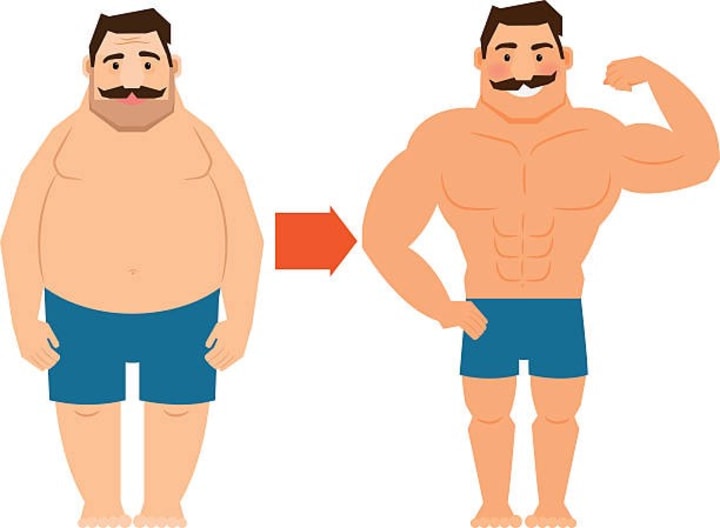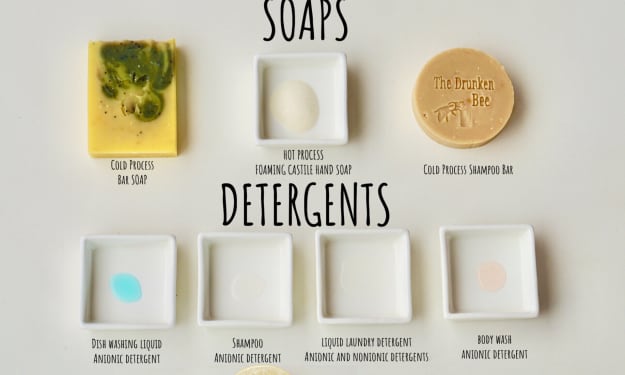Boost Your Testosterone Naturally
10 Proven Strategies to Increase Levels

Testosterone is a hormone that is produced by the testicles in men and is responsible for the development of male characteristics, such as facial hair, a deep voice, and increased muscle mass. It is also important for maintaining sex drive, sperm production, and bone density.
Having high testosterone levels can be beneficial for men in many ways. It can improve physical strength and performance, increase muscle mass, and improve sex drive. Testosterone can also help with brain function, including memory and concentration.
Low testosterone levels can cause a range of symptoms, including low sex drive, fatigue, and muscle loss. If you’re looking to increase your testosterone naturally, here are 9 proven strategies that may help:
1. Get enough sleep. Testosterone levels are highest in the morning, and sleep deprivation has been linked to lower testosterone levels. Aim for 7–9 hours of sleep per night.
If you’re trying to increase your testosterone levels, getting enough sleep should be at the top of your list. Testosterone levels are highest in the morning, so getting a good night’s sleep is key. And if you’re not getting enough shut-eye, you might as well forget about boosting your testosterone. Studies have shown that sleep deprivation is linked to lower testosterone levels.
But don’t just take our word for it. Look at the evidence. One study found that men who slept only 4 hours per night for 1 week had significantly lower testosterone levels than men who slept 8 hours per night. Another study found that men who slept 5 hours or less per night had lower testosterone levels than men who slept 7–8 hours per night.
So, what’s the magic number? Aim for 7–9 hours of sleep per night. Trust us, your testosterone (and your partner) will thank you. And if you’re having trouble falling or staying asleep, try implementing some relaxation techniques before bed or speak with a healthcare professional. A good night’s sleep is essential for overall health and well-being, and it can help boost those testosterone levels too.
Try out this formula to help you restore deep sleep as well as you feed your brain with the right nutrients to build up stress resilience and enhance cognitive performance
2. Exercise regularly. Resistance training and high-intensity interval training have both been shown to boost testosterone levels.
Ladies and gentlemen, it’s time to hit the gym (or your living room, no judgment here). Exercise has been shown to boost testosterone levels, and there are two types of workouts in particular that seem to be particularly effective: resistance training and high-intensity interval training.
First up, resistance training. This type of workout involves lifting weights (or using your own body weight) to build muscle. And the more muscle you have, the more testosterone your body will produce. So, hit the weights and pump those biceps (or triceps, or quads, or glutes… you get the idea).
But don’t just stick to the weight room. High-intensity interval training (HIIT) has also been shown to boost testosterone levels. HIIT involves short bursts of intense exercise followed by periods of rest. So, if you’re short on time (or just really enjoy suffering), HIIT might be the way to go.
Now, we know what you’re thinking. “But I hate exercise! I’d rather sit on the couch and eat a tub of ice cream.” Hey, we feel you. But exercise has so many benefits beyond just boosting testosterone levels. It can improve cardiovascular health, reduce stress, and even improve brain function. Plus, there’s the whole “looking and feeling great” thing. So, grab your sneakers and get moving!
3. Eat a healthy diet. A diet rich in protein, healthy fats, and complex carbohydrates can help support healthy testosterone levels.
Listen up, all you foodies out there. If you want to boost your testosterone levels, it’s time to start paying attention to what you eat. A healthy diet is essential for maintaining testosterone levels, and there are a few key nutrients that are especially important.
First up, protein. This macronutrient is essential for building and repairing muscle tissue, and it can also help boost testosterone production. So, load up on lean sources of protein like chicken, fish, and tofu.
Next, healthy fats. These are the good fats that your body needs to function properly, and they can also help boost testosterone levels. Some great sources of healthy fats include avocado, olive oil, and nuts.
And finally, complex carbs. These are the carbs that are packed with nutrients and take longer for your body to break down. They can help give you sustained energy and support healthy testosterone levels. So, ditch the refined carbs (sorry, white bread) and opt for whole grains like quinoa and brown rice.
Now, we know what you’re thinking. “But I love junk food! I can’t give up my chips and soda.” Hey, we feel you. But a healthy diet has so many benefits beyond just boosting testosterone levels. It can improve overall health, reduce the risk of chronic diseases, and even improve brain function. Plus, you’ll feel and look great.
4. Try a testosterone booster. Natural supplements like magnesium, vitamin D, and zinc have all been shown to help increase testosterone.
Are you feeling like your testosterone levels could use a little boost? Well, you’re in luck! There are a number of natural supplements that have been shown to help increase testosterone. So, if you’re ready to level up, here are a few options to consider:
First up, magnesium. This mineral is essential for a number of bodily functions, and it may also help boost testosterone levels. So, if you’re feeling a little low on energy, try chowing down on some magnesium-rich foods like nuts, seeds, and leafy greens.
Next, vitamin D. This vitamin is important for bone health and may also help increase testosterone levels. So, grab your sunscreen and get outside! Just make sure to use it responsibly (no one wants a sunburn).
And finally, zinc. This mineral is important for immune function and may also help increase testosterone levels. So, load up on zinc-rich foods like shellfish, nuts, and seeds.
Now here is a little secret I will show you. This is coming from personal experience as well as knowing other people benefiting from this testosterone boosting supplement. No side effects and amazing results.
5. Reduce stress. Chronic stress has been linked to lower testosterone levels, so finding ways to manage stress can be beneficial.
Ah, stress. It seems like it’s always lurking around the corner, waiting to pounce. But did you know that chronic stress can lead to lower testosterone levels? Yup, it’s true. So, if you want to boost your testosterone, it might be time to find some ways to manage that stress.
But how, you might ask? Well, there are plenty of ways to reduce stress. Exercise is a great option (and it’s been shown to boost testosterone levels, too). So, hit the gym or go for a run and sweat out some of that stress.
Meditation and deep breathing can also be helpful. Taking a few minutes to focus on your breath and clear your mind can do wonders for your stress levels.
And if all else fails, try some good old-fashioned fun. Engaging in activities that you enjoy can help reduce stress and improve your overall well-being. So, go out with friends, try a new hobby, or just kick back and watch a movie.
Now, we know what you’re thinking. “But I have so much to do! I don’t have time to relax.” Hey, we feel you. But reducing stress is important for overall health and well-being, and it can help boost those testosterone levels too.
6. Limit alcohol consumption. Alcohol can interfere with testosterone production, so limiting your intake may help increase levels.
Attention all you beer lovers! It’s time to listen up. While a little alcohol here and there might be okay, overindulging can have some negative effects on your testosterone levels. That’s right, alcohol can interfere with testosterone production, so limiting your intake may help increase your levels.
But how much is too much? Well, the recommended amount of alcohol for men is up to 2 drinks per day. And by “drinks,” we mean one 12-ounce beer, one 5-ounce glass of wine, or 1.5 ounces of hard liquor. So, if you’re sipping on cocktails all night long, you might want to cut back.
7. Get enough vitamin D. Low vitamin D levels have been linked to low testosterone, so getting enough of this vitamin may help.
It’s time to take a hike. Low levels of vitamin D have been linked to low testosterone, so if you want to boost those levels, it might be time to up your intake of this important vitamin.
But where can you get vitamin D? Well, the most obvious source is the sun. Just a few minutes of sun exposure can give you a good dose of vitamin D. But if you’re like us and prefer to avoid sunburns (or you live in a place where the sun is a rare sighting), there are other options.
Certain foods are also rich in vitamin D, such as fatty fish, egg yolks, and fortified foods like milk and cereal. And if you’re still having trouble getting enough vitamin D, you can always try a supplement. Just make sure to speak with a healthcare professional before starting any new supplement regimen.
8. Avoid environmental toxins. Certain chemicals and pesticides can interfere with testosterone production, so avoiding exposure to these toxins may help increase levels.
Certain chemicals and pesticides can interfere with testosterone production, so if you want to boost your levels, it might be time to avoid exposure to these toxins.
But where are these toxins hiding? Well, they can be found in a variety of places, including the air we breathe, the water we drink, and the products we use. So, what can you do to avoid them?
First, try to limit your exposure to air pollution by staying indoors on days when air quality is poor. You can also try using a high-quality air purifier to remove toxins from the air in your home.
Next, be selective about the products you use. Look for products that are free of chemicals and pesticides, and try to buy organic whenever possible.
And finally, be mindful of the water you drink. Some water sources may contain high levels of toxins, so consider using a water filter to remove these impurities.
9. Lose weight. Obesity has been linked to lower testosterone levels, so losing weight may help increase testosterone.

Attention all you couch potatoes! It’s time to get moving. Obesity has been linked to lower testosterone levels, so if you want to boost your testosterone, it might be time to shed some pounds.
But how can you do it? Well, there are a few tried-and-true methods for losing weight. First, try to eat a healthy diet that is rich in nutrients and low in empty calories. Incorporating more fruits, vegetables, and lean proteins can help you feel full and satisfied while still losing weight.
Next, get moving. Exercise is an essential component of any weight loss plan, and it has the added benefit of boosting testosterone levels. So, hit the gym or go for a run and get those endorphins flowing.
And finally, don’t get discouraged. Losing weight can be a slow process, and it’s important to be patient and consistent. Remember to celebrate your progress, no matter how small, and keep working towards your goals.
So if you didn't know, now you know.
Thanks for reading
About the Creator
Enjoyed the story? Support the Creator.
Subscribe for free to receive all their stories in your feed. You could also pledge your support or give them a one-off tip, letting them know you appreciate their work.






Comments
There are no comments for this story
Be the first to respond and start the conversation.